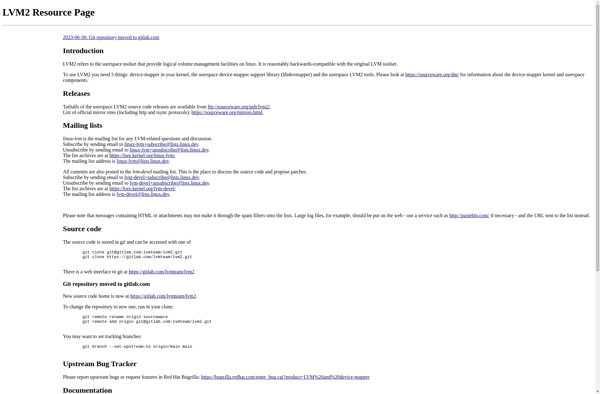Logical Volume Manager

Logical Volume Manager (LVM)
Logical Volume Manager (LVM) is a disk management utility for Linux that allows administrators to create logical volumes out of physical disk partitions. This provides more flexibility in dynamically allocating storage space compared to using physical partitions directly.
What is Logical Volume Manager?
Logical Volume Manager (LVM) is a storage management tool for Linux and other Unix-like operating systems. It provides administrators with more flexibility in how they allocate storage space on a system compared to simply using physical partitions.
Some key capabilities LVM provides include:
- Creating logical volumes out of underlying physical volumes (hard drives or partitions)
- Dynamically growing, shrinking and migrating logical volumes as needed without downtime
- Creating volume groups out of multiple physical volumes which appear as a single disk for file systems
- Striping and mirroring capabilities for improved performance or redundancy
With LVM, an administrator can combine partitions and entire drives into a volume group which can then be divided into logical volumes. The file system sees a logical volume as a physical device but the administrator can dynamically change its size or location as needed. This avoids having to directly manage partitions and makes better use of the available storage space.
LVM is commonly used in Linux servers and infrastructure to create flexible storage configurations that can easily be adapted to changing storage requirements. It allows more efficient use of storage and simplifies storage management tasks.
Logical Volume Manager Features
Features
- Creates logical volumes out of physical disks
- Allows dynamic allocation of storage space
- Allows extending logical volumes
- Allows shrinking logical volumes
- Allows spanning logical volumes across multiple disks
- Provides snapshots and backups
Pricing
- Open Source
Pros
Cons
Official Links
Reviews & Ratings
Login to ReviewThe Best Logical Volume Manager Alternatives
Top System & Hardware and Disk Management and other similar apps like Logical Volume Manager
Macrium Reflect

MiniTool Partition Wizard

DiskGenius
EaseUS Partition Master

Parted Magic

Disk Utility

Windows Computer Management

Partition Logic

Paragon Partition Manager

Active@ Boot Disk

Active@ Partition Manager

LVM2
